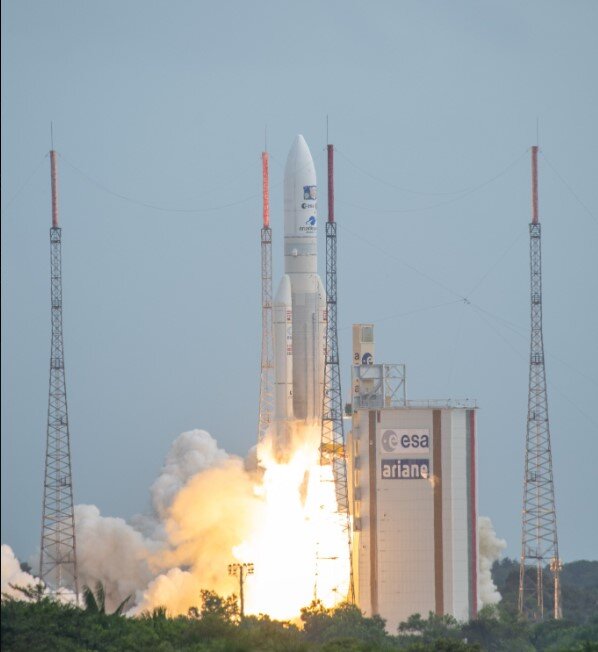
Ibadan, 14 April 2023. – The European Space Agency (ESA) and Arianespace have successfully launched the JUpiter ICy moons Explorer (JUICE) mission after postponing it yesterday due to weather concerns. The spacecraft will begin its eight-year journey to the Jovian system to explore its suitability for life, among other mission objectives.
The JUpiter ICy moons Explorer is the first European mission to study Jupiter and its Icy Moons. It includes ten advanced instruments and a science experiment linking the onboard communication system with Earth-based radio telescopes. It will observe Jupiter in detail, as well as Europa, Ganymede, and Callisto.
ESA also included a commemorative plaque celebrating Galileo’s discovery of Jupiter’s moons on the mission as part of the final preparations. The plaque is a tribute to Italian astronomer Galileo Galilei who was the first to view Jupiter and its four largest moons through a telescope in 1610. His observation that the moons changed position from night to night overturned the long-held idea that everything in the heavens revolved around Earth. In his honor, the moons – Io, Europa, Ganymede, and Callisto – became collectively known as the Galilean satellites.
As a result, JUICE will see Jupiter and its moons in a way that Galileo could not, using its suite of powerful instruments. JUICE will spend more than three years in the system, collecting data to provide answers on the conditions for planet formation and the emergence of life. It will also spend nine months orbiting the icy moon Ganymede, analyzing its nature and evolution and its potential habitability.
Furthermore, the data the spacecraft returns will serve many future generations of scientists in uncovering the mysteries of the Jovian system and its place in the evolution of our Solar System.





